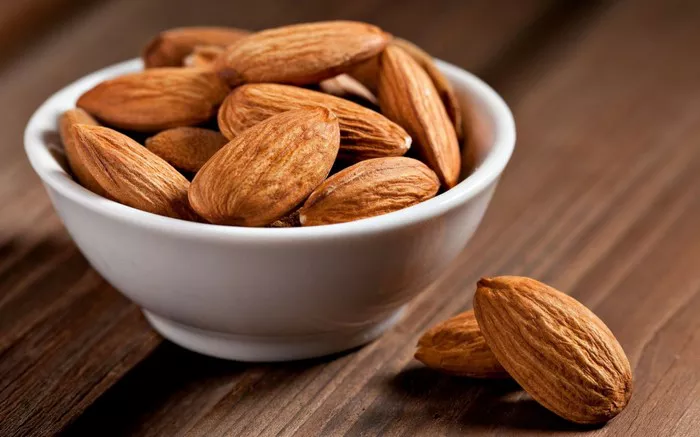Dry fruits, also known as dried fruits or nuts, are a popular snack choice for many people due to their convenience, long shelf life, and nutritional benefits. For heart patients, choosing the right type of dry fruits can be important to support heart health and overall well-being. In this article, we will explore which dry fruits are particularly beneficial for heart patients and why they should be included in a heart-healthy diet.
Understanding Heart Health and Nutrition
Before delving into specific dry fruits, it’s essential to understand the role of nutrition in heart health. A heart-healthy diet typically includes foods that are low in saturated fats, trans fats, cholesterol, and sodium. Instead, it emphasizes nutrient-rich foods like fruits, vegetables, whole grains, lean proteins, and healthy fats.
Dry fruits offer a range of nutrients that can contribute to heart health, such as fiber, unsaturated fats, vitamins, minerals, and antioxidants. These nutrients play various roles in maintaining cardiovascular health, including reducing inflammation, lowering cholesterol levels, regulating blood pressure, and supporting overall heart function.
Top Dry Fruits for Heart Patients
1. Almonds: Almonds are a nutrient-dense dry fruit packed with heart-healthy benefits. They are rich in monounsaturated fats, which can help lower LDL (bad) cholesterol levels when consumed as part of a balanced diet. Almonds also provide fiber, vitamin E, magnesium, and antioxidants like flavonoids, all of which contribute to heart health by reducing oxidative stress and inflammation.
2. Walnuts: Walnuts are another excellent choice for heart patients due to their high content of omega-3 fatty acids, particularly alpha-linolenic acid (ALA). Omega-3 fatty acids are known for their anti-inflammatory properties and cardiovascular benefits, including lowering triglyceride levels and improving blood vessel function. Incorporating walnuts into the diet can help support heart health and reduce the risk of heart disease.
3. Pistachios: Pistachios are a flavorful and nutritious dry fruit that offers several heart-healthy advantages. They are a good source of unsaturated fats, fiber, plant sterols, and antioxidants like lutein and zeaxanthin. Consuming pistachios has been linked to improved cholesterol levels, reduced blood pressure, and enhanced vascular health, making them a valuable addition to a heart-healthy diet.
4. Dried Cranberries: While not technically a nut, dried cranberries are a popular dried fruit option that can benefit heart health. They are rich in antioxidants, particularly flavonoids and polyphenols, which have anti-inflammatory and cardiovascular protective effects. Dried cranberries also provide fiber and vitamin C, supporting overall cardiovascular wellness.
5. Dates: Dates are a natural source of energy and nutrients, making them a nutritious choice for heart patients. They are high in fiber, potassium, magnesium, and antioxidants like phenolic compounds. Including dates in moderation can help regulate blood pressure, improve heart rhythm, and provide a healthy alternative to refined sugars in desserts or snacks.
6. Apricots: Dried apricots are nutrient-dense fruits that offer heart-healthy benefits. They are rich in potassium, which helps regulate blood pressure and maintain fluid balance in the body. Apricots also provide fiber, vitamins A and C, and antioxidants, supporting cardiovascular health and overall well-being.
7. Prunes: Prunes, also known as dried plums, are known for their digestive benefits, but they also offer advantages for heart health. They are a good source of fiber, potassium, vitamin K, and antioxidants like beta-carotene and phenolic compounds. Consuming prunes can aid in cholesterol management, promote healthy digestion, and contribute to heart wellness.
Incorporating Dry Fruits Into a Heart-Healthy Diet
To reap the benefits of dry fruits for heart health, it’s essential to incorporate them into a balanced and varied diet. Here are some tips for including dry fruits in a heart-healthy eating plan:
1. Snack Wisely: Choose unsalted and unsweetened varieties of dry fruits to avoid added sodium and sugar. Portion control is also important, as dry fruits are calorie-dense.
2. Add to Meals: Sprinkle chopped nuts or dried fruits on salads, oatmeal, yogurt, or whole grain cereals for added flavor, texture, and nutrients.
3. Blend Into Smoothies: Incorporate nuts or dried fruits into smoothies for a nutritious and filling beverage that supports heart health.
4. Use in Cooking: Include chopped nuts or dried fruits in recipes for baked goods, stir-fries, pilafs, or stuffing to enhance both taste and nutritional value.
5. Pair with Protein: Combine dry fruits with lean proteins like grilled chicken, fish, or tofu for a balanced meal that supports satiety and heart wellness.
Conclusion
In conclusion, incorporating certain types of dry fruits into a heart-healthy diet can provide valuable nutrients and contribute to cardiovascular wellness. Almonds, walnuts, pistachios, dried cranberries, dates, apricots, and prunes are among the top choices for heart patients due to their nutrient profiles and associated health benefits. By making mindful choices and including these dry fruits in moderation, individuals can support their heart health and overall well-being.


